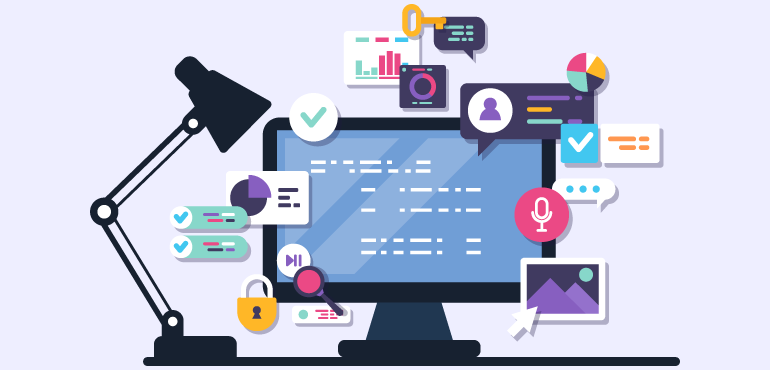
The Must-Know Digital Leadership Styles
Reading Time: 4 minutesThis article was first published on Read Write. The importance of digital transformation continues to be one of the most important priorities in organizations, especially so after the pandemic. The benefits of implementing digital leadership styles have become apparent. Only the organizations fully embraced and committed to digital transformation could survive the disruption caused by

10 Unmissable Tips to Successfully Carry Out Digital Transformation in your Company
Reading Time: 6 minutesThis article was first published on Nasscom. Digitalization has increased substantially, with businesses employing cutting-edge techniques like low-code/no-code to create a wide range of applications. Despite this, some companies need help to develop a comprehensive, integrated approach to digitization or to move from a pilot to a company-wide implementation. They need an operating strategy that encourages innovation and digitization.

10 Warning Signs that it’s Time to Adopt No-Code Low-Code for your Enterprise
Reading Time: 3 minutesThis article was first published on Nasscom. Today’s businesses face increasing pressure to create software applications quickly and efficiently. But traditional software development methods can be time-consuming, expensive, and require a lot of technical expertise. That’s where no-code low-code development platforms come in – they offer a way for non-technical users to create applications without

2023: A Promising year for No-Code and Hyperautomation
Reading Time: 3 minutesThis article was first published on Customer Think Here’s one of the many predictions for 2023: Digital transformation driven by the shift to hybrid and remote work will continue to accelerate. COVID-19 served as a wake-up call for companies dragging their feet on digitization. Organizations of all sizes were forced to accelerate their adoption of

GIFing you an Insight into No-Code
Reading Time: 6 minutesThis article was first published on Nasscom Community. We all love a good GIF to convey what no image or text can; in the same way, no-code can convey ease and agility to your business like nothing else can. Understanding new concepts by reading blog after blog can be quite taxing, especially when you have

Top 8 Tips for Managing No-Code Low-Code Citizen Development
Reading Time: 7 minutesThis article was first published on Customer Think The philosophy of no-code low-code technology — that business users can build their solutions all on their own — resonates with enterprises. According to Gartner, by 2026, developers outside formal IT departments will account for at least 80% of the user base for low-code development tools, up from 60%

Digital Business Strategy Post-COVID-19: Top 5 Goals to Accelerate Business
Reading Time: 9 minutesThis article (Digital business strategy post-Covid-19: Top 5 goals to accelerate business ) was first published on ITProPortal Digital business strategy in organizations around the globe has made us see some major wrecking in 2020. The pandemic has very evidently left the phrase “business is as usual” in a faraway land and time. The idea of

Automate the Receipt/Label Generation & Printing Process with Quixy
Reading Time: 3 minutesAutomation is crucial for a thriving business as our world moves towards digital transformation. By automating processes, enterprises are able to make their workflows faster and are doing more with less. Your barcode labeling environment is no exception. With automated label printing, you can create a labeling process that is faster, more efficient, and has zero room for errors.

The Benefits of Quiet Hiring: A Low-Key Approach to Finding Top Talent
Reading Time: 3 minutesThis article was first published on Medium. Quiet hiring is not just another HR buzzword. It is so much more than that. It enables the quiet quitters to become even more active and responsible in the team. Let us understand the meaning of quiet hiring and its benefits. What is Quiet Hiring? Quiet hiring refers

Get started in minutes with Quixy’s Ready-To-Use Solutions
Reading Time: 3 minutesTypical IT projects span between 3 months and 18 months with a failure rate of ~95%. The majority of the projects fail due to mismatch in expectations, scope creeps, changing business environment, etc. to name a few. In this day and age, building an application from the basics to realizing all your business requirements is not an easy endeavor. We all ignore the pitfalls of typical software development













